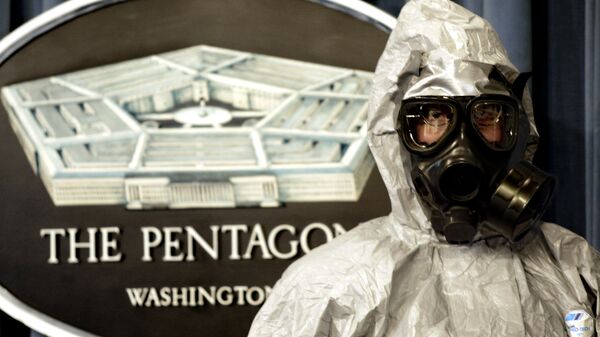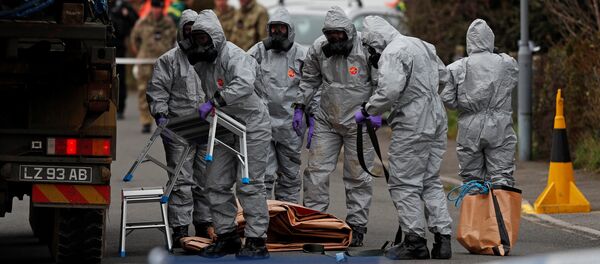It added that the US also sticks to defeasance causes in papers related to international agreements; agreements banning the use of chemical and bacteriological weapons.
"We find it necessary to say that the US, not Russia, remains the only signatory of the Convention for the Prohibition of Chemical Weapons that keeps a sizable arsenal of chemical weapons," the ministry said in its commentary. Moreover, according to open sources of information, the US issues patents for inventions related to full-fledged poisonous chemical agents, including nerve agents," the commentary said.
"In all, some 140 patents have been issued for the use of such toxins," it added.
The commentary described the alleged poisoning of the former Russian intelligence officer Sergei Skripal and his daughter Yulia in Salisbury as a blatant attempt to cast into doubt Moscow’s adherence to the Convention for the Prohibition of Chemical Weapons.
“[The United States] has even accused Russia of breaching Article I of the Convention for the Prohibition of Chemical Weapons. Russia has once and again outlined its position on this issue.”
The statement also described the US and its allies’ airstrikes on Damascus following an alleged chemical weapons attack by Syrian government forces in Douma on April 7 as a violation of the Convention for the Prohibition of Chemical Weapons.
“The airstrike came just as OPCW experts were about to go to Douma to investigate. We have every reason to believe that the attack was an attempt to hamper their work and prevent an unbiased probe into the incident,” the statement said.
It added that on April 9 representatives of the Russian Reconciliation Center in Syria examined the site of the alleged chemical attack in Douma and found no traces of any chemical substances there.
Implementation of the Convention for the Prohibition of Chemical Weapons
The United States continues to stick to defeasance causes in documents related to chemical weapons, including when it comes to the protocol banning the use of bacteriological weapons.
“In view of the US failure to retract its defeasance to the 1925 Geneva Protocol, which outlaws the use of bacteriological weapons, it stands to reason to question the true reasons behind Washington’s military-biological activity in the post-Soviet territory,” says the commentary posted on the Foreign Ministry’s official website.
READ MORE: LISTEN as OPCW Chief Allegedly Admits Skripal Poison Could Be Made Anywhere
Sixty-six-year-old former Russia intelligence officer Sergei and his daughter Yulia Skripal were found unconscious on a bench outside a shopping mall in Salisbury on March 4.
London was quick to accuse Russia of poisoning the two with the Novichok nerve agent, resulting in the mass expulsions of Russian diplomats from the UK and more than 25 other countries, including the US and Canada.
Moscow responded in kind, denying all the accusations and pointing to the complete lack of evidence linking it to the March 4 incident.



